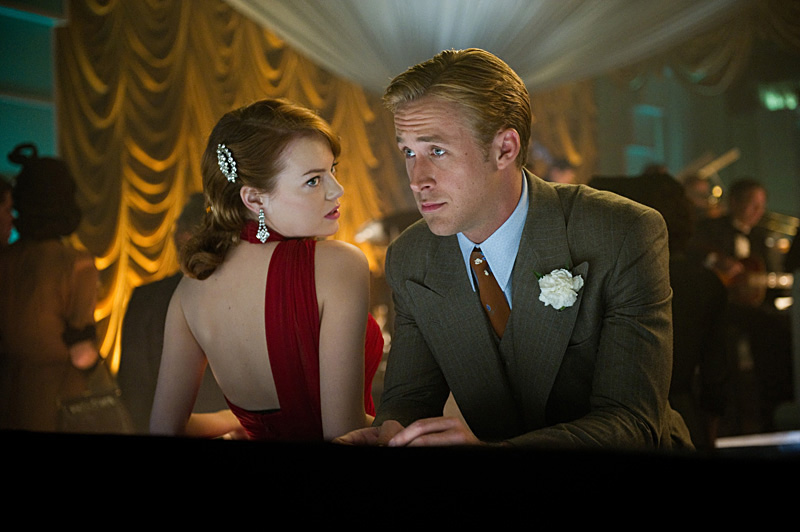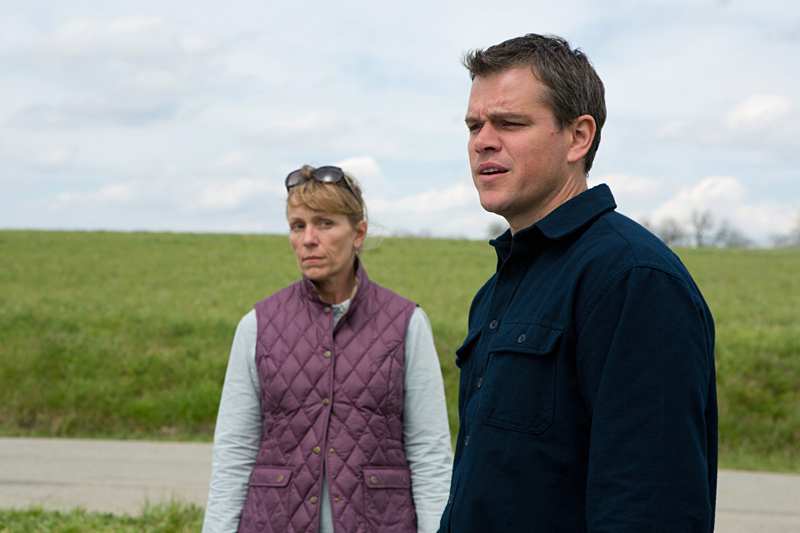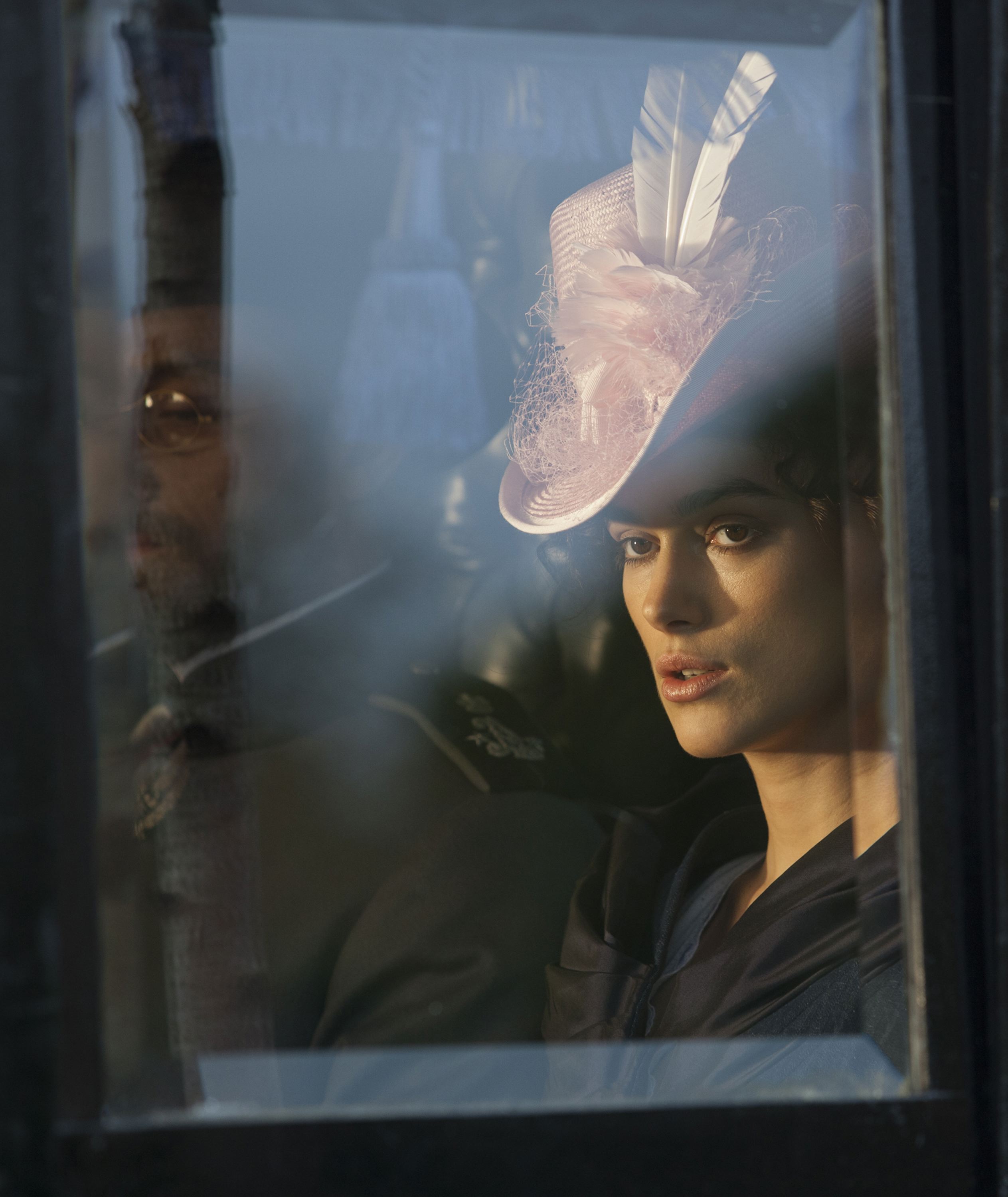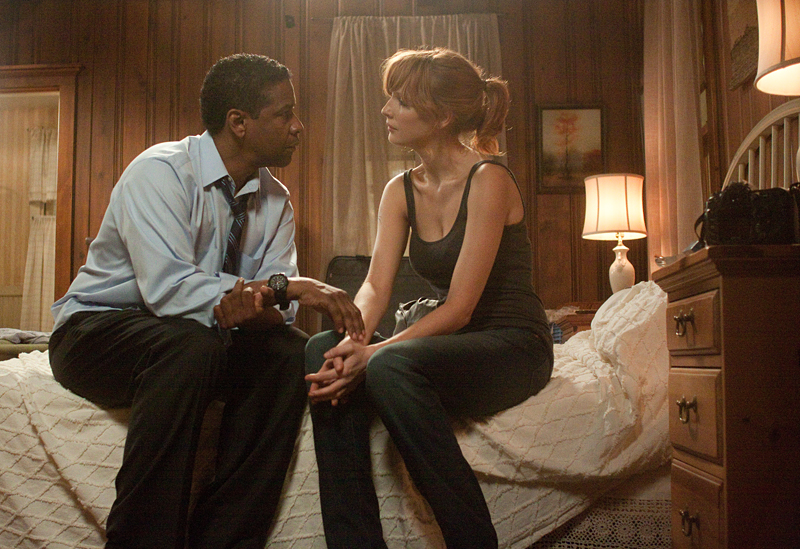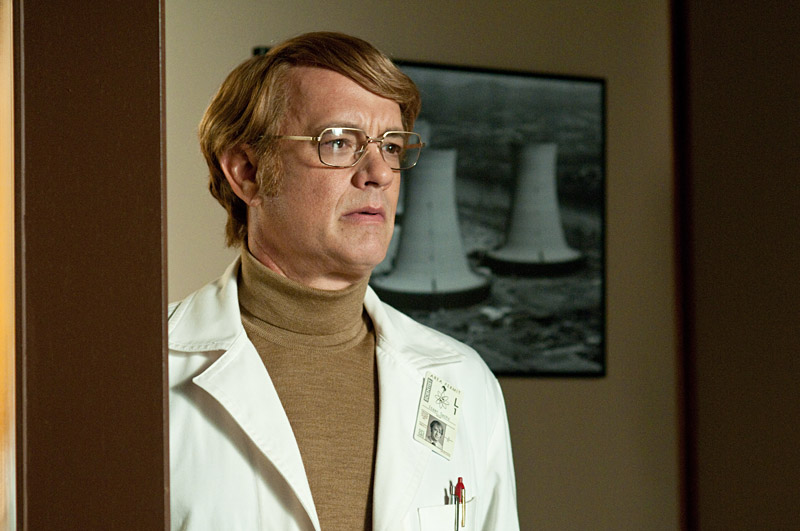Originally slated to open in September 2012, Gangster Squad was delayed when the movie-theater shooting in Aurora, Colorado, suddenly made a scene of gunfire in Grauman’s Chinese Theatre “inappropriate.” But released any time, the movie would be a crime against cinematic sensibility. As Gangster Squad opens, boss Mickey Cohen (Sean Penn) is the snake in the West Coast Eden of prosperous Los Angeles circa 1949. LAPD Sergeant John O’Mara (Josh Brolin) is offered the chance to put together an unofficial unit to bust up Cohen’s rackets. The only other squad member given a story line to himself is Ryan Gosling’s Sergeant Jerry Wooters, who takes up with Cohen’s arm candy (Emma Stone); this gives Gosling an occasion to ply his shy-heartthrob trade, the sheepish boy showing off his cantaloupe biceps. It would be the film’s silliest performance were it not for Penn donning a pound of putty to play Cohen—his smushed mug would suit a Dick Tracy villain. All the usual cop-opera conceits–“duty,” “badge of honor,” “fraternity”–get trotted out, but only the pummeling violence stirs director Ruben Fleischer’s interest. Gangster Squad caroms from crime to retaliation, from tommy-gun assassination to a power drill through the head to a pistol-whipping, every bloodletting hyped by Steve Jablonsky’s score or peppy period tunes counterpoised for ironic effect. In reducing the great themes of the Warner Bros. crime-film legacy to a series of bases to be rounded, Gangster Squad desecrates the symbols of the movies it alleges to pay homage to. film@seattleweekly.com
Originally slated to open in September 2012, Gangster Squad was delayed when
